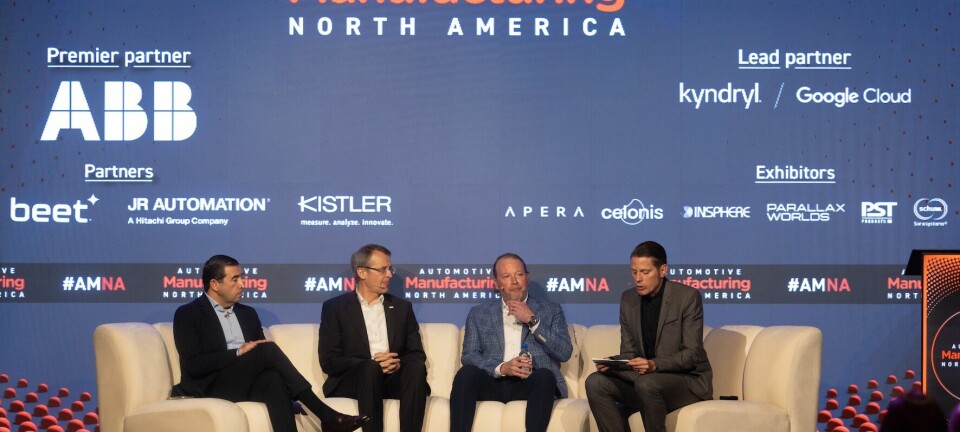AM NA 2025: Dr Georges Ayoub
Watch: Data ecosystems and digital twins driving the next era of zero-defect manufacturing
From battery testing and driver simulation to digital twin development, Dr Ayoub’s team is building the foundations for smarter, more efficient, and more sustainable production.
More video
-
2026 and the knowledge capture race reshaping auto production
-
Murugan Boominathan on how Magna is managing digital change across complex operations
-
AMS Talks 2025-2026: The Human & The Machine in Carmaking
-
Watch: Collaboration, speed and people-first digitalisation define global manufacturing transformation
-
Watch: Collaboration and speed key to manufacturing transformation at Bosch
At the AMS North America conference in Detroit last week, Dr Georges Ayoub, associate professor of mechanical engineering at the University of Michigan–Dearborn, outlined how data-driven innovation and advanced digital twin research are helping to transform US manufacturing competitiveness.
Ayoub’s team is leading several applied research projects across battery performance, driver simulation and smart factory systems. During an AMS tour of the university’s advanced manufacturing labs, he highlighted that data is at the heart of every breakthrough.
“We are moving from a world of data deserts to data ecosystems,” said Ayoub. “The data that exists is a raw material, like iron ore, that must be refined and processed before it can deliver value.”
The university’s research focuses on developing intelligent systems that connect real and virtual environments. Ayoub emphasised that digital twins are often misunderstood as simple computer models.
“A true digital twin goes beyond CAD,” he explained. “It’s a seamless connection between the physical and digital model that enables automated intervention, higher efficiency and ultimately zero-defect manufacturing.”
These initiatives align with growing industrial and governmental pressure to strengthen domestic production efficiency and reduce costs. Through collaboration with automotive partners such as Ford, Ayoub’s team has been developing digital twins for live stamping lines, projects that directly respond to industry demand for greater digitisation and quality control.
“If we want to bring manufacturing back to the US, we need to make it cost-efficient and competitive,” Ayoub added. “Digitisation is the only way forward.”
The partnership between academia and industry, he said, will be key to ensuring that the US remains a hub for advanced manufacturing innovation.








